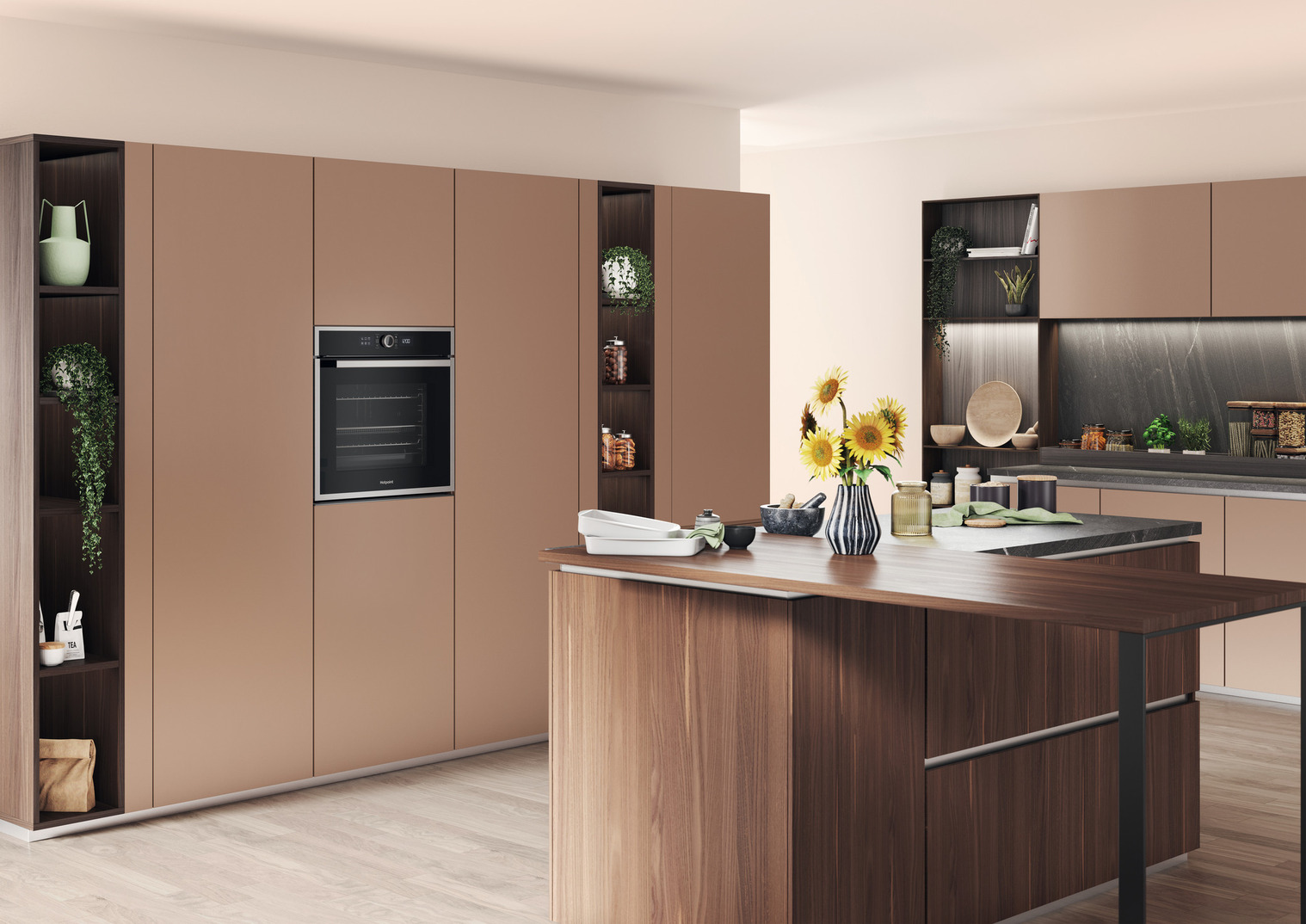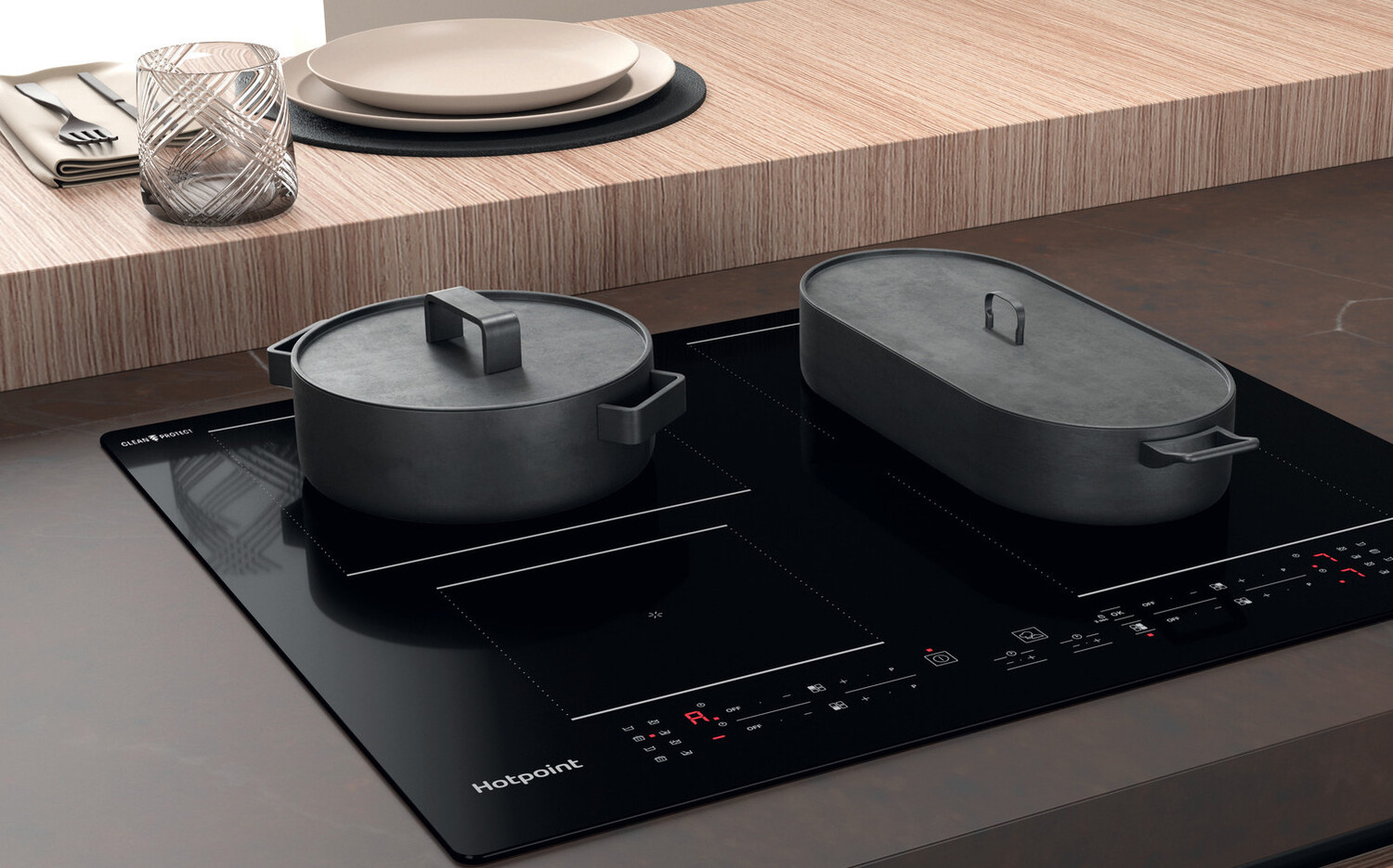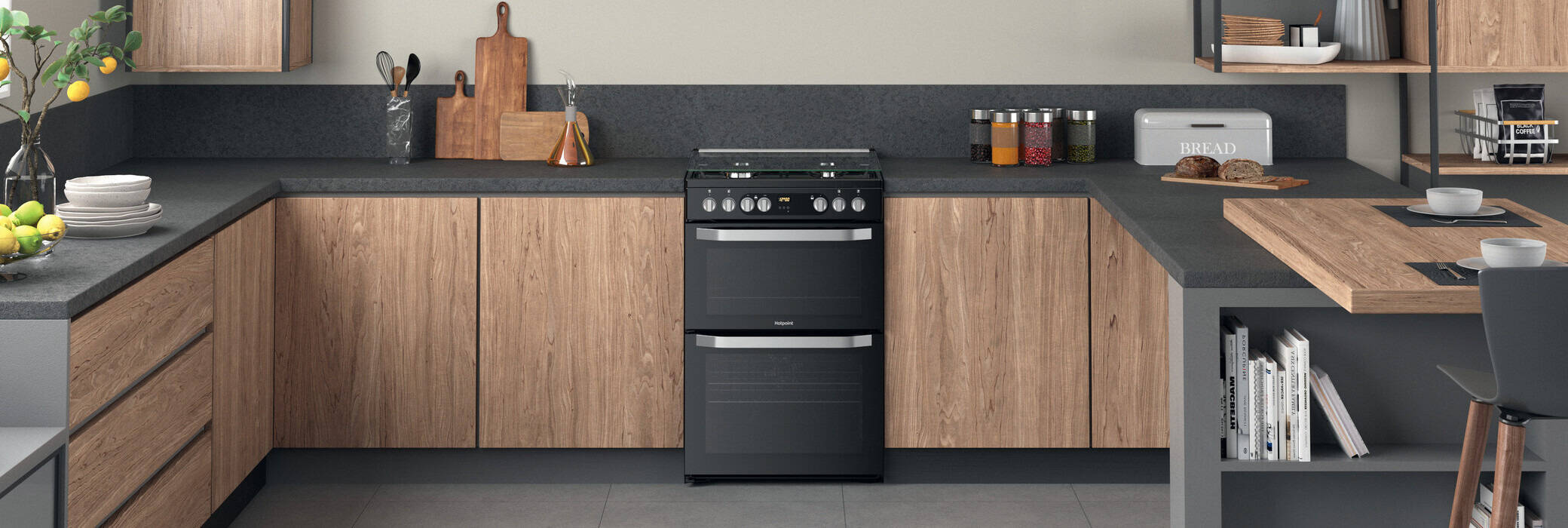Choosing the right cooker can change the entire cooking experience. Whether you’re whipping up a quick weeknight dinner or hosting a weekend feast, selecting between gas cookers and electric cookers is crucial. Each offers advantages tailored to different cooking styles and household needs.
In this article, we will explore the distinctive features of gas and electric cookers, including their operation, efficiency, and suitability for various cooking tasks. By considering the insights provided here, you'll be better equipped to decide which option aligns with your lifestyle and culinary ambitions.
What Are Gas Cookers and How Do They Work?
Gas cookers are a vital part of many households, offering exciting cooking possibilities. These appliances operate using natural gas or LPG, providing direct flame cooking that many chefs adore.
Our Hotpoint gas cookers exemplify reliability. They heat up in an instant, ensuring you're not left waiting when time is of the essence. With features like precise temperature control and even the ability to create a humid environment ideal for baking, these cookers cater beautifully to both skillful cooks and daily meal preppers alike.

What Are Electric Cookers and How Do They Operate?
Electric cookers are a wonderful addition to any kitchen, combining reliability with ease of use. They are powered by electric heating elements and provide an efficient cooking experience.
Quick Heating vs. Even Cooking: Which Is More Important?
When considering your cooking needs, two factors often come to the forefront: quick heating and even cooking. Gas cookers excel at rapid heat-up times, providing instant flames that make boiling water or frying veggies a breeze. This capability is perfect for busy households where meals need to be prepared swiftly.
On the other hand, electric cookers shine in delivering even heat distribution. They maintain consistent temperatures, making them fantastic for delicate culinary tasks.
Ultimately, the right choice depends on your cooking style. If speed and sizzling energy are your priorities, you might gravitate towards gas. However, if your heart lies in baking or even roasting, an electric cooker might be ideal for you.

Running Costs: Gas Cookers versus Electric Cookers
When it comes to running costs, evaluating your options is essential for keeping your home budget intact. Gas cookers generally offer lower operating costs because natural gas tends to be more affordable than electricity. Families, particularly those who cook frequently, may find that a gas cooker helps reduce overall expenses while still delivering delicious meals.
Electric cookers, while often being more expensive to run due to higher electricity prices, provide undeniable benefits in cooking performance and energy efficiency, especially with modern technology. Those who invest in energy-efficient electric models can enjoy consistent cooking results without worrying about excessive energy bills.
Ultimately, choosing between gas and electric will depend on your cooking habits and budget preferences.
Installation Considerations: Gas or Electric?
When choosing between gas and electric cookers, installation is a key factor to consider. Gas cookers require professional installation by Gas Safe registered engineers, ensuring safety and compliance with regulations. This additional step is important but offers peace of mind knowing your appliance is securely set up.
In contrast, electric cookers are typically straightforward to install. Many models simply plug into a standard socket, making them an ideal choice for those who appreciate convenience.
At Hotpoint, we provide resources and support for both options. Whether you prefer the warmth of a gas flame or the precision of electric heating, we’re committed to making the installation process smooth and stress-free for you.
Cleaning Efficiency: Gas Cooking vs. Electric Cooking
Keeping your cooker clean is essential for both hygiene and maintaining its performance. When it comes to ease of cleaning, electric cookers often have the upper hand. Models with ceramic or induction surfaces are typically smooth and easy to wipe down, making post-meal clean-up a breeze.
Gas cookers, while beloved for their cooking efficiency, may require a bit more elbow grease. The burners and grates can collect grease and food particles, necessitating regular upkeep to keep them performing optimally.
At Hotpoint, we prioritise innovative design to make cleaning easier across our product range. Our models balance functionality with convenience, ensuring your cooking space remains as delightful as the meals you prepare. As always, we’re here to support you in creating a clean and welcoming kitchen environment!
